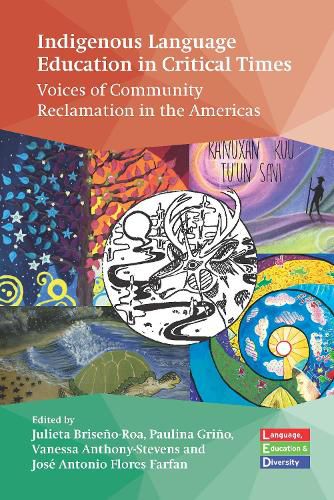Readings Newsletter
Become a Readings Member to make your shopping experience even easier.
Sign in or sign up for free!
You’re not far away from qualifying for FREE standard shipping within Australia
You’ve qualified for FREE standard shipping within Australia
The cart is loading…






This book builds a space in which a diversity of voices - Indigenous teachers, activists and committed academics - are foregrounded in the processes of Indigenous education with the goal of Indigenous language reclamation. It decenters state systems of education (e.g. schooling) and instead considers the efforts of teachers (defined broadly), community activists and scholars who are developing initiatives to support Indigenous language practices in, around and beyond schooling, thereby emphasizing diverse processes of language reclamation in complex and varied settings. The authors invite the reader to reconsider language reclamation in the face of climate change and neocolonial exploitation, offering a source of radical hope for the future. Central to the book are narratives regarding community-based collaborations, which subvert the asymmetrical power relations between academia and educational practitioners and activists, and call into question the categories constructed by a top-down approach, as well as the colonial relationships that linguistic anthropology and linguistics have constructed within the spaces and people they 'study'.
$9.00 standard shipping within Australia
FREE standard shipping within Australia for orders over $100.00
Express & International shipping calculated at checkout
This book builds a space in which a diversity of voices - Indigenous teachers, activists and committed academics - are foregrounded in the processes of Indigenous education with the goal of Indigenous language reclamation. It decenters state systems of education (e.g. schooling) and instead considers the efforts of teachers (defined broadly), community activists and scholars who are developing initiatives to support Indigenous language practices in, around and beyond schooling, thereby emphasizing diverse processes of language reclamation in complex and varied settings. The authors invite the reader to reconsider language reclamation in the face of climate change and neocolonial exploitation, offering a source of radical hope for the future. Central to the book are narratives regarding community-based collaborations, which subvert the asymmetrical power relations between academia and educational practitioners and activists, and call into question the categories constructed by a top-down approach, as well as the colonial relationships that linguistic anthropology and linguistics have constructed within the spaces and people they 'study'.